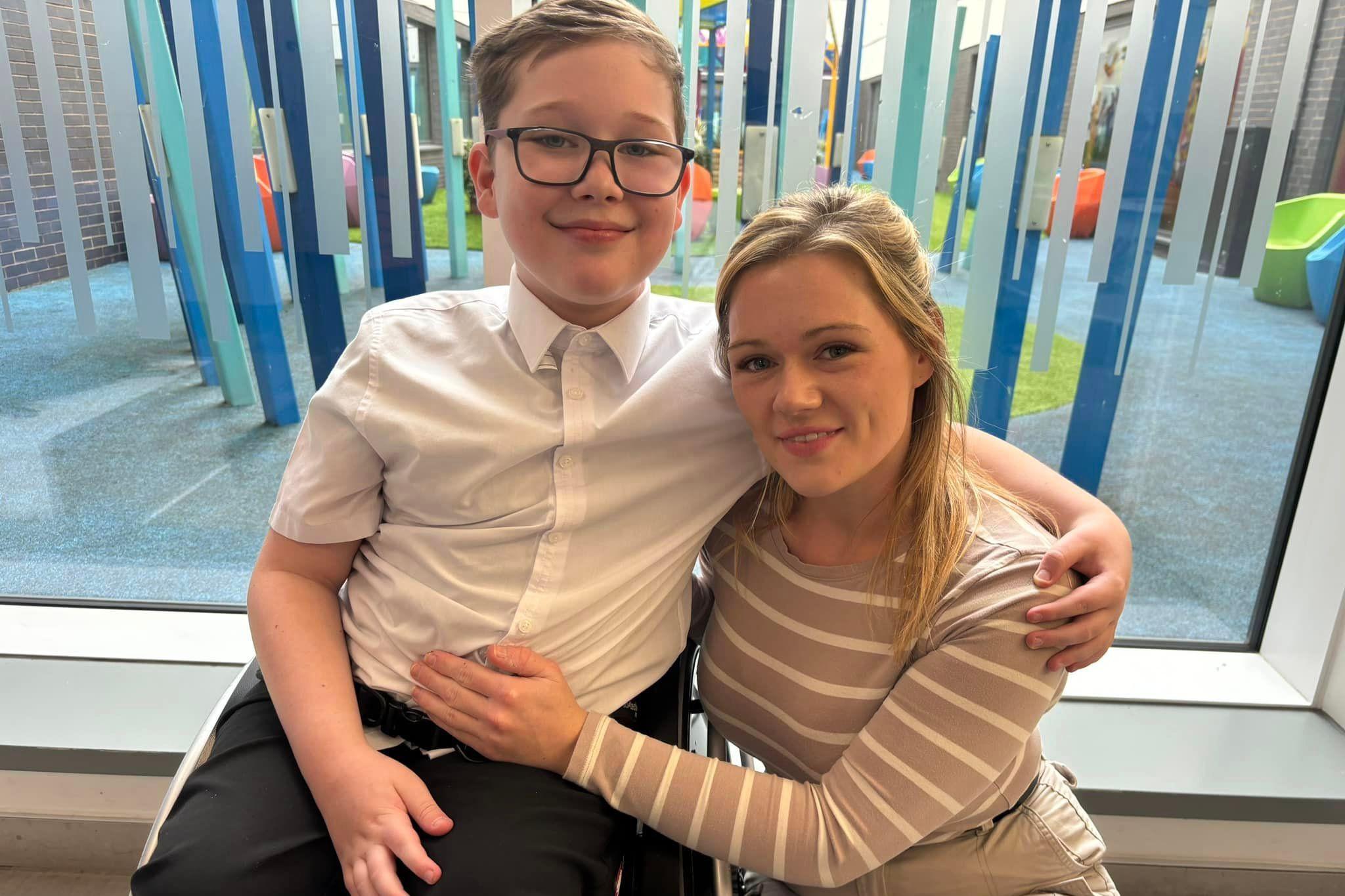Boy, 11, embraces his spinal condition

Alex has Spina Bifida, where the bones of the spinal cord haven't fused properly
- Published
"I am at the children’s hospital quite a lot, but I embrace having Spina Bifida. It is part of me."
Alex, from Bournville in Birmingham, wants to raise awareness and increase understanding of his spinal condition.
According to his doctors, he is a real-life superhero. While only 11 years of age, he has already had 18 surgeries, the latest being in March, but he tackles everything with a smile on his face.
Alex, who is cared for at Birmingham Children's Hospital, said: "Although the hospital is like my second home, I still have lots of friends at school."
Spina Bifida is a condition where the bones of the spinal cord don’t fuse properly during a baby’s development, leaving the spinal cord exposed. This can lead to varying degrees of spinal cord damage.
It can affect multiple organ systems including the brain and lower limbs, as well as bowel and bladder function.
Alex said: "I think it’d be good for more people to understand the condition better, have more of an awareness of it and to speak more about it.
"They don’t really talk much about it at my school. I would feel more seen if they did."
Spina Bifida affects about six babies out of every 10,000.
In most cases, it happens by chance during a baby’s early development. Rarely it can be part of a genetic condition that runs in families.

Alex, who is a huge fan of theatre and Aston Villa Football Club, says hobbies help to take his mind off things
Alex regularly sees a team of urologists and neurosurgeons at the children's hospital, where he can often be spotted telling jokes or whizzing around in his bright red mobility aid with light-up wheels.
He said: "The doctors and nurses are really nice. It is hard to choose a favourite because they are all great.
"They help with a lot of different things like physiotherapy and other activities to help my muscles grow."
The avid Aston Villa and theatre fan said it was sometimes tough having to ask for help or adjust to less accessible facilities because he used a wheelchair, but his more recent surgeries had helped him adapt to day-to-day life.
The gamer, who is also a budding artist and musician, said: "I do not let Spina Bifida hold me back. I have hobbies to take my mind off things."

Alex's mum said: "Alex is very capable and independent. It’s important for people to recognise that."
Alex’s mum, Annie, said: "Sometimes people see the wheelchair and think he’s less intelligent or less capable.
"They might show too much pity, which isn’t helpful. Alex is very capable and independent. It’s important for people to recognise that."
Annie, who stressed the importance of automatic doors and "proper accessibility", said there should be more information available about the condition to help people understand what it is.
She added: “I often feel really bad and wish I could take all his hardships away. But the hospital staff are wonderful and always doing the right things. They offer so much support.
“I look forward to seeing what Alex will do when he is grown up, he loves science and drama. He is very knowledgeable and has a great sense of humour – a natural comedian."
Mr Desiderio Rodrigues, consultant and clinical service lead in the neurosurgery department at the hospital, operated on Alex when he was a baby.
He said: "Alex reminds me that superheroes live in the hearts of our children fighting big battles. He has shown us all that he is a real superhero.
"He is an inspiration to all, taking all life has to offer in his stride. He always has a big radiant smile even in the midst of adversity."
Get in touch
Tell us which stories we should cover in Birmingham and the Black Country
Follow BBC Birmingham on BBC Sounds, Facebook, external, X, external and Instagram, external.